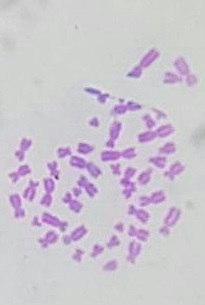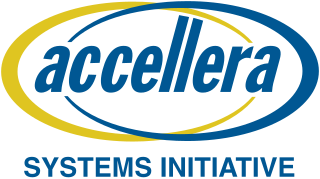Related Research Articles

A schematic, or schematic diagram, is a designed representation of the elements of a system using abstract, graphic symbols rather than realistic pictures. A schematic usually omits all details that are not relevant to the key information the schematic is intended to convey, and may include oversimplified elements in order to make this essential meaning easier to grasp, as well as additional organization of the information.
EDA or Eda may refer to:
Electronic design automation (EDA), also referred to as electronic computer-aided design (ECAD), is a category of software tools for designing electronic systems such as integrated circuits and printed circuit boards. The tools work together in a design flow that chip designers use to design and analyze entire semiconductor chips. Since a modern semiconductor chip can have billions of components, EDA tools are essential for their design; this article in particular describes EDA specifically with respect to integrated circuits (ICs).

Synopsys is an American electronic design automation (EDA) company headquartered in Sunnyvale, California that focuses on silicon design and verification, silicon intellectual property and software security and quality. Synopsys supplies tools and services to the semiconductor design and manufacturing industry. Products include tools for logic synthesis and physical design of integrated circuits, simulators for development, and debugging environments that assist in the design of the logic for chips and computer systems. As of 2023, the company is a component of both the Nasdaq-100 and S&P 500 indices.

Accellera Systems Initiative (Accellera) is a standards organization that supports a mix of user and vendor standards and open interfaces development in the area of electronic design automation (EDA) and integrated circuit (IC) design and manufacturing. It is less constrained than the Institute of Electrical and Electronics Engineers (IEEE) and is therefore the starting place for many standards. Once mature and adopted by the broader community, the standards are usually transferred to the IEEE.

Daisy Systems Corporation, incorporated in 1981 in Mountain View, California, was a computer-aided engineering company, a pioneer in the electronic design automation (EDA) industry.
The Phil Kaufman Award was established in 1994 by the EDA Consortium to recognize individuals for their impact on electronic design by their contributions to electronic design automation (EDA). The IEEE Council on Electronic Design Automation (CEDA) became a co-sponsor in 2006. The award has been dubbed "The Nobel Prize of the EDA Industry".
James E. Solomon is an American engineer and entrepreneur. In his lifetime, he has founded four companies, including one of the companies that merged to form the leading chip manufacturing toolmaker Cadence Design Systems. He is an IEEE Fellow and received the industry's Phil Kaufman Award in 1997. Solomon holds 23 patents in integrated chip design.
Design flows are the explicit combination of electronic design automation tools to accomplish the design of an integrated circuit. Moore's law has driven the entire IC implementation RTL to GDSII design flows from one which uses primarily stand-alone synthesis, placement, and routing algorithms to an integrated construction and analysis flows for design closure. The challenges of rising interconnect delay led to a new way of thinking about and integrating design closure tools.

The Design Automation Conference, or DAC, is an annual event, a combination of a technical conference and a trade show, both specializing in electronic design automation (EDA).
An EDA database is a database specialized for the purpose of electronic design automation. These application specific databases are required because general purpose databases have historically not provided enough performance for EDA applications.
SIGDA, Association for Computing Machinery's Special Interest Group on Design Automation , is a professional development organization for the Electronic Design Automation (EDA) community. SIGDA is organized and operated exclusively for educational, scientific, and technical purposes in electronic design automation. SIGDA's bylaws were approved in 1969, following the charter of SIC in Design Automation in 1965.
Design, Automation & Test in Europe, or DATE is a yearly conference on the topic of electronic design automation. It is typically held in March or April of each year, alternating between France and Germany. It is sponsored by the SIGDA of the Association for Computing Machinery, the Electronic System Design Alliance, the European Design and Automation Association (EDAA), and the IEEE Council on Electronic Design Automation (CEDA). Technical co-sponsors include ACM SIGBED, the IEEE Solid-State Circuits Society (SSCS), IFIP, and the Institution of Engineering and Technology (IET).
EDAC may refer to:

ODB++ is a proprietary CAD-to-CAM data exchange format used in the design and manufacture of electronic devices. Its purpose is to exchange printed circuit board design information between design and manufacturing and between design tools from different EDA/ECAD vendors. It was originally developed by Valor Computerized Systems, Ltd. as the job description format for their CAM system.

Rajeev Madhavan is a serial entrepreneur and investor, and a founder and General Partner of Clear Ventures. He is perhaps best known as the founder of software company Magma Design Automation, where he served as chairman and chief executive officer from its founding in 1997 through its acquisition by Synopsys in 2012. He also co-founded software companies LogicVision and Ambit Design Systems. Red Herring magazine named Madhavan to its "Top Innovators" list in 2002.
Mary Jane Irwin is an Emerita Evan Pugh Professor in the Department of Computer Science and Engineering at Pennsylvania State University. She has been on the faculty at Penn State since 1977. She is an international expert in computer architecture. Her research and teaching interests include computer architecture, embedded and mobile computing systems design, power and reliability aware design, and emerging technologies in computing systems.
Siemens Digital Industries Software is an American computer software company specializing in 3D & 2D Product Lifecycle Management (PLM) software. The company is a business unit of Siemens, operates under the legal name of Siemens Industry Software Inc, and is headquartered in Plano, Texas.

Walden C. “Wally” Rhines is an American engineer and businessman. Rhines is President and CEO of Cornami, Inc., a fabless semiconductor company focused on fully homomorphic encryption. Previously, he was President and CEO of Mentor Graphics, a Siemens Business for 23 years and Executive VP of the Semiconductor Group of Texas Instruments for 21 years. Rhines was named overall CEO of the Year by Portland Business Journal in 2012 and Oregon Technology Executive of the Year by the Technology Association of Oregon in 2003. He was named an IEEE Fellow in 2017.
Kathryn Kranen is an American electronic design automation engineer and business executive.
References
- ↑ ESD Alliance home page
- 1 2 3 "EDA Consortium Becomes Electronic System Design Alliance"
- ↑ "Background" - a timeline of the organization